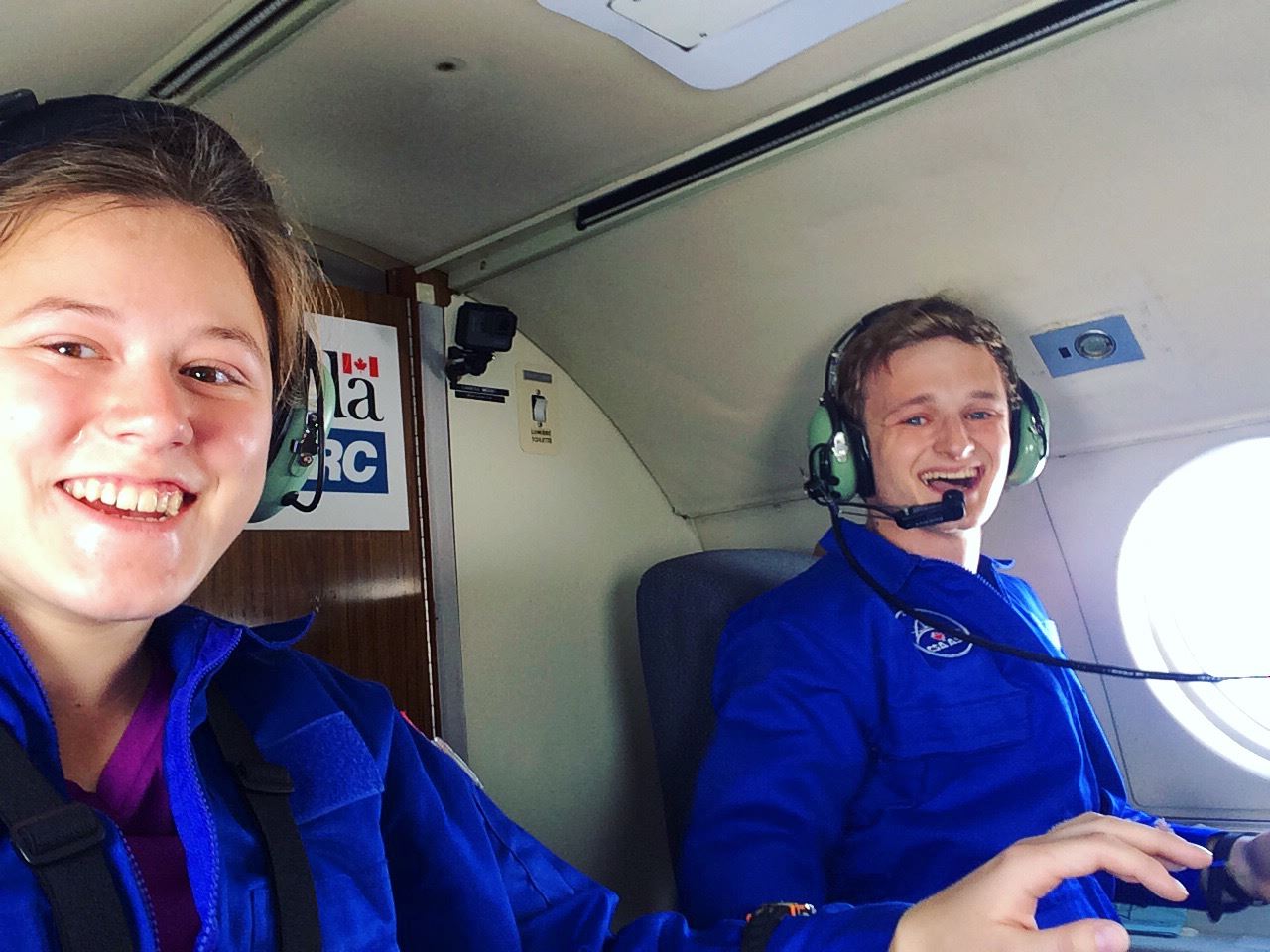Defying Gravity
Have you ever dreamed about going to space? Wondered what is it like to be in a zero gravity environment? Last summer, students from 4 universities across Canada were selected for an experience of a lifetime. They were chosen to design an experiment to test in zero gravity.
by Sam Wilton-Clark (Calgary iGEM 2017) & Elisha Krauss (Queen’s University iGEM 2017)
iGEM Calgary 2017 at Giant Jamboree
Astroplastic: In 2017, the Calgary iGEM team developed a start-to-finish process which converted human fecal matter into biodegradable plastic known as polyhydroxybutyrate (PHB), which can be 3D printed. This project, titled, “Astroplastic”, was designed with space travel in mind; by producing a plastic with myriad possibilities through 3D printing from inevitable human waste, space crews could be able to perform longer missions in a more sustainable manner.
Following the presentation of Astroplastic at the jamboree, the project was taken one step further through the Canada Reduced Gravity experiment, which allowed the project to be tested in zero gravity through parabolic flight. This initiative, made possible by SEDS Canada in collaboration with the Canadian Space Agency (CSA) and the National Research Council (NRC), selected four teams from across Canada to test their experiments in zero gravity aboard the NRC’s Falcon 20 research aircraft. This opportunity allowed the team to design and test the engineering side of Astroplastic as opposed to the biological side. The team built a prototype of their PHB extraction system, which recovers PHB through a process known as dissolved air flotation and tested it in zero gravity August 28th, 2018.
For Astroplastic, this opportunity was definitely worth it, even though the Falcon 20 aircraft, also known as the “Vomit Comet”, truly lived up to its nickname. This was an excellent experience which allowed the team to properly execute and test their project. The challenge also promoted testing of the non-biological components of an iGEM project, an aspect of the project that the team hoped to investigate further after the iGEM Jamboree last year.
Elisha Krauss: Memorize, regurgitate, forget, repeat. At the undergraduate level, it can feel like there isn’t any room for creativity and inquiry, and if you want to succeed, there is a rigid set of facts and concepts that need to be memorized. In the biological sciences, this is especially true. We learn about a system or a theory, but there lacks an opportunity for practical application and creativity. Scientific research has focused on deconstructing the world; explaining how the world works. This has led to profound realizations, but this knowledge is wasted if we don’t do anything with it. Scientists don’t just stop when they discover the cause of diseases, they use this knowledge to find treatments and develop cures.
If we want students to take interest and continue in science, it must be engaging. Therefore, competitions like iGEM are critical to education. Students are challenged to apply knowledge from the classroom in the fast-evolving field of synthetic biology and to tackle current real-world problems relating to medicine, food and nutrition, sustainability, and more. Rather than deconstruct the world, we engineer biology to shape it.
My love of scientific innovation has influenced my position as a team leader for the Queen’s Canada iGEM Team. I’ve learned lessons from this experience about critical thinking, problem solving, and teamwork that could never be taught in a lecture or a seminar. It has been an exceptional opportunity to think creatively, design my own experiments, and hone my skills as a young scientist. This experience allowed my good friend Aaron Rosenstein and I to submit a winning application to the Canadian Reduced Gravity Experiment Design Challenge run by the Students for the Exploration and Development of Space (SEDS). Our proposal to test the potential impact of microgravity on DNA Polymerase I error rate, was one of only 4 experiments accepted from entries across Canada. On August 30th, after hundreds of hours of preparation, we ran our experiment aboard the National Research Council’s Falcon 20 Jet, while floating in microgravity. It was the ride of a lifetime!
With my undergraduate education behind me, and having just started graduate studies, I look forward to one last chance to share my love for creative scientific innovation at the undergraduate level, through my team’s presentation at the 2018 iGEM competition. See you at the Jamboree!”
Editor’s Note: We loved seeing meeting Elisha, his team and their presentation at the Jamboree last year. Onwards and Upwards!
My love of scientific innovation has influenced my position as a team leader for the Queen’s Canada iGEM Team. I’ve learned lessons from this experience about critical thinking, problem solving, and teamwork that could never be taught in a lecture or a seminar. It has been an exceptional opportunity to think creatively, design my own experiments, and hone my skills as a young scientist. This experience allowed my good friend Aaron Rosenstein and I to submit a winning application to the Canadian Reduced Gravity Experiment Design Challenge run by the Students for the Exploration and Development of Space (SEDS). Our proposal to test the potential impact of microgravity on DNA Polymerase I error rate, was one of only 4 experiments accepted from entries across Canada. On August 30th, after hundreds of hours of preparation, we ran our experiment aboard the National Research Council’s Falcon 20 Jet, while floating in microgravity. It was the ride of a lifetime!
With my undergraduate education behind me, and having just started graduate studies, I look forward to one last chance to share my love for creative scientific innovation at the undergraduate level, through my team’s presentation at the 2018 iGEM competition. See you at the Jamboree!”
Editor’s Note: We loved seeing meeting Elisha, his team and their presentation at the Jamboree last year. Onwards and Upwards!










